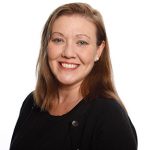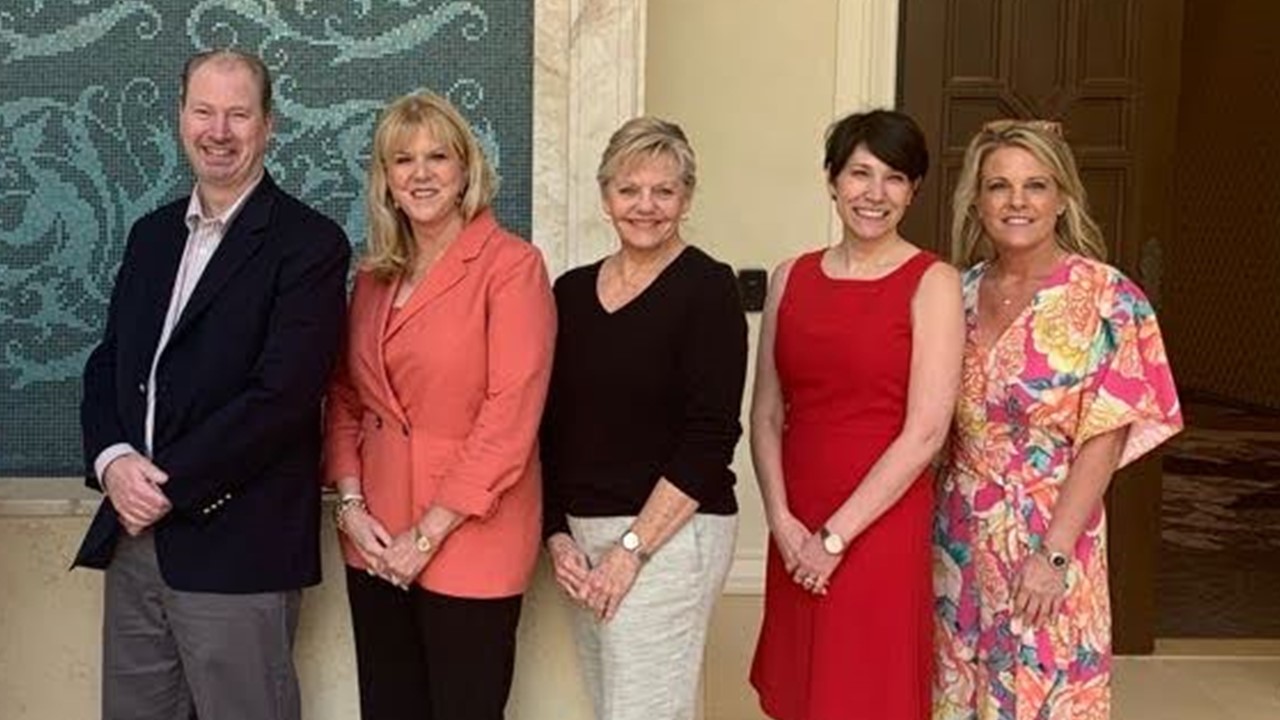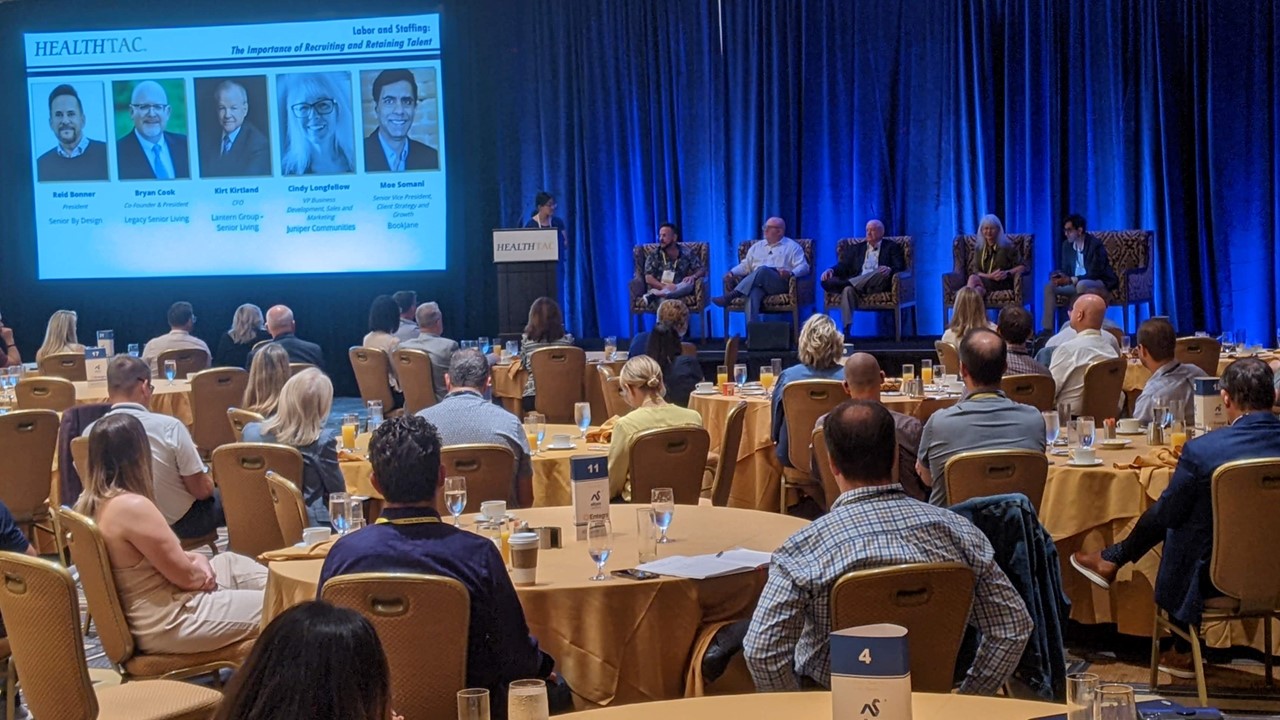
By Kerry | November 9, 2021
LeadingAge is signaling a new era for the aging services sector. The organization returned to an entirely in-person annual conference and expo in October and in January, National President and CEO of Volunteers of America Mike King will begin his two-year term as LeadingAge’s Board Chair. King has already stated that he will work to advance the mission as well as LeadingAge’s Strategic Plan 2021-2023. With Biden’s scaled down Build Back Better Act still on the table (at press time), LeadingAge could soon enjoy some legislative wins.

But as LeadingAge’s Susan Donley, senior vice president of communications and marketing, shared with Senior Living News, potential legislative victories won’t stop the organization from continuing to advocate on behalf of its members and older adults. Read on to learn more about what 2022 holds in store for LeadingAge.
LeadingAge’s Policy Vision was published in August. Since then, LeadingAge President and CEO Katie Smith Sloan has praised President Biden’s “budget reconciliation framework as an ‘historic step.’” If this budget passes, how will that change the Policy Vision?
One piece of legislation, no matter how important and frankly, how large in scale, can’t solve all the issues. The reality is that our country’s population is aging and the need for aging services will only continue to grow. Our country has not invested sufficiently in the care and services that older adults have needed for decades. So there’s no quick fix to this scale of need. We will continue to fight with our policy team, our advocates and our membership for specific policy changes and increased investment, even that which is already included in the Build Back Better Act, like affordable housing for older adults and more investment in our sector’s workforce. We’ll keep fighting no matter how great this bill ends up being.
Our Policy Vision is really made to layout a bold and comprehensive vision for the future. It lays out a vision for a future where older adults have equitable choice for the care that they need and for their preferences, a clear point of entry and navigation as their needs and preferences change. The also extends to the sector’s workforce. But all of this needs to be grounded in viable financial planning. So changes in our government financing systems are fundamental to the kinds of changes that this vision would require.
While we make progress and intend to continue doing so with this current bill and with future legislators, our vision is bigger and bolder and we will continue to work towards achieving that larger framework. The programs and initiatives funded in the Build Back Better Act will make progress toward the vision that we’ve laid out in our paper. But we will continue to have different asks and we will work with different committees and allies on Capitol Hill to develop different kinds of legislation. Build Back Better supports that overarching direction.
For example, we’re asking for significant investment in affordable housing for older adults in the Build Back Better legislative package. Our allies on the Hill are working hard to explain the level of funding needed and why in order to support our vision of how a successful aging services sector can work. We know older adults need safe and appropriate housing so they can get the care and services that they need. Build Back Better has incremental steps toward our vision. Some of our asks may shift as others are met, but all the steps in our vision work together as far as achieving a successful aging services sector.
Coronavirus Response Resources are still a feature on LeadingAge.com. Do you expect they will be a permanent fixture on the site?
As an association, we will continue to provide Coronavirus resources for our members as long as they need them. As long as Covid is part of our members’ lives, we will offer Covid support to them. Even as cases are declining and we’re moving in a great direction, aging services providers still have Covid-related needs, like vaccine and booster clinics, PPE and testing. So we’re keeping all of that top of mind and we’re bringing our members information as there are changes to the rules, regulations and guidance regarding Covid so that they can take advantage of what we can offer. For example, we’re working with Clorox to offer members grands for funding need for vaccine clinics, both Covid and the flu. We’re keeping our members’ emerging and changing Covid needs at the front of our services for members. But we’re also integrating that into the work that we always do.
As LeadingAge’s new Board Chair, how will Mike King drive the future of the organization over the next two years?
We’ve been very fortunate to have a strong and engaged board of directors and Mike will bring his own unique approach to his leadership just as our current Board Chair Carol Silver Elliott has done. We know he’ll focus on making sure we make progress with our current strategic plan and that we’re pushing forward and making good progress on those priorities.
Everyone on our board has a different perspective and different point of view intentionally because we want diverse support to ensure that our governance is strong and represents different strengths and expertise. Mike brings his own unique experience. Volunteers of America is a unique LeadingAge member because it provides a range of aging services and more broadly human services.
Given that the field’s workforce has historically been more diverse than other sector’s, what is LeadingAge’s vision for Diversity, Equity and Inclusion (DEI) and the aging services sector?
LeadingAge has a strong commitment to addressing issues of racial injustice, equity and inclusion in our field and for older adults. Addressing these issues has been part of who LeadingAge is as an organization for a longtime. We’re apolitical and really steadfast in building an equitable and inclusive sector.
As we lay out in our Strategic Plan 2021-23, we’re doing a lot of work to strengthen our members’ acumen around DEI issues. We’re working on developing a diverse pipeline for aging services and specifically for the sector’s leadership. The care workforce has historically been black and brown and particularly comprised of women. But the sector’s leadership has been less diverse. So we’re working on initiatives that include a summer enrichment intern program for students. We want to make sure that equity in our sector isn’t just about workers who historically have been people of color, but we also want to make sure equity exists at the executive level.
We’ve also been conducting original research and talking to current leaders of color to better understand the issues related to DEI in the field and to assess that what we’re doing now will ensure that we make a meaningful difference moving forward.
Could you talk about how professionalizing the caregiving workforce will also help to make the field more competitive as far as attracting workers?
Despite the incredible value that direct care professionals bring to older adults and our society, they are simply not valued by our health care system. Care givers traditionally don’t earn high wages, often receive inadequate benefits and have tough working conditions. In many cases, they’re doing extremely labor-intensive jobs. At LeadingAge, we know that professional care givers are at the heart of aging services. Older adults can’t receive the care they need without direct care workers. LeadingAge is trying to imagine what our workforce would look like if we could create the support that would make it more appealing to work in our sector.
We want to provide workers with high-quality, competency-based training and to think about wages that are commensurate with competency levels as well as skilled supervision and good working conditions. We should also think about career pathways and career advancement. This will lead to better jobs and a stronger workforce across the board.





